I love to read. I find it helpful to summarize my thoughts on each book and I offer those thoughts in the hope that you will be encouraged to either read or pass over the given title.
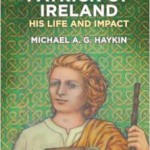 Patrick of Ireland: His Life and Impact by Michael Haykin. More than just being the patron saint of a holiday in March, St. Patrick of Ireland was a man of fierce orthodoxy and evangelistic zeal. In this little book Haykin gives an overview of Patrick’s life and ministry. It reads somewhat like an academic paper, but don’t let that deter you from picking up a copy. What I found most interesting was Patrick’s eschatology; in taking the gospel to Ireland he believed he was evangelizing the last people group on earth and so ushering in the coming of Christ. Other interesting historical and theological tidbits abound, which is typical of Haykin’s work—he is indeed a master scholar.
Patrick of Ireland: His Life and Impact by Michael Haykin. More than just being the patron saint of a holiday in March, St. Patrick of Ireland was a man of fierce orthodoxy and evangelistic zeal. In this little book Haykin gives an overview of Patrick’s life and ministry. It reads somewhat like an academic paper, but don’t let that deter you from picking up a copy. What I found most interesting was Patrick’s eschatology; in taking the gospel to Ireland he believed he was evangelizing the last people group on earth and so ushering in the coming of Christ. Other interesting historical and theological tidbits abound, which is typical of Haykin’s work—he is indeed a master scholar.
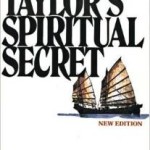 Hudson Taylor’s Spiritual Secret by Dr. & Mrs. Howard Taylor. Lord willing, tomorrow night I will preach a biographical sermon at IDC on Hudson Taylor, so this famous work on his life was required reading for the week. Six years ago when I first read the book I found it stirring and challenging. This time around I found myself a bit disappointed at its hagiographical nature (Taylor’s son wrote the book and emphasized on the good about his father’s ministry). I wanted more critical interaction with his ministry in China and various decision he made along the way. Nevertheless, Hudson Taylor’s Spiritual Secret is an edifying and informative read.
Hudson Taylor’s Spiritual Secret by Dr. & Mrs. Howard Taylor. Lord willing, tomorrow night I will preach a biographical sermon at IDC on Hudson Taylor, so this famous work on his life was required reading for the week. Six years ago when I first read the book I found it stirring and challenging. This time around I found myself a bit disappointed at its hagiographical nature (Taylor’s son wrote the book and emphasized on the good about his father’s ministry). I wanted more critical interaction with his ministry in China and various decision he made along the way. Nevertheless, Hudson Taylor’s Spiritual Secret is an edifying and informative read.
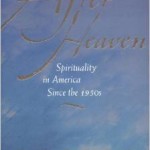 After Heaven: Spirituality in America Since the 1950s by Robert Wuthnow. What a fascinating book! In After Heaven Wuthnow analyzes the development of spirituality in America since the 1950s. He argues that American spirituality has moved from “a traditional spirituality of inhabiting sacred places has given way to a new spirituality of seeking.” I found his thesis convincing and his cultural analysis piercing. He walks through each decade from the 1950s-1990s and shows how American spirituality changed from and reacted against what came before. For Wuthnow the proper approach to spirituality is a “practice-oriented” one, which sounds to me like an ordinary-means-shaped piety. It’s a solution I can heartily agree with.
After Heaven: Spirituality in America Since the 1950s by Robert Wuthnow. What a fascinating book! In After Heaven Wuthnow analyzes the development of spirituality in America since the 1950s. He argues that American spirituality has moved from “a traditional spirituality of inhabiting sacred places has given way to a new spirituality of seeking.” I found his thesis convincing and his cultural analysis piercing. He walks through each decade from the 1950s-1990s and shows how American spirituality changed from and reacted against what came before. For Wuthnow the proper approach to spirituality is a “practice-oriented” one, which sounds to me like an ordinary-means-shaped piety. It’s a solution I can heartily agree with.
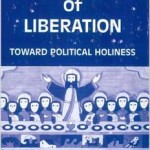 Spirituality of Liberation: Toward Political Holiness by Jon Sobrino. Oh my, what a turgid read this one was. In the 1970s Liberation Theology grabbed a hold of Roman Catholic practice in Latin American countries and Sobrino was one of the movement’s major thinkers. Liberation Theology believed that because God is most revealed in the poor and that Christ is liberator of the poor, true spirituality is practiced among the poor. It’s practiced among the poor so that the poor might find liberation in “reign of God,” which is not much more than the poor escaping their socioeconomic captivity. Thus, liberation theology inevitably became concerned with social and political structures required for liberation (hence the emphasis on “political holiness”). Sobrino captures all of this in Spirituality of Liberation and if this movement sounds stimulating—dive on in. If not, just move along.
Spirituality of Liberation: Toward Political Holiness by Jon Sobrino. Oh my, what a turgid read this one was. In the 1970s Liberation Theology grabbed a hold of Roman Catholic practice in Latin American countries and Sobrino was one of the movement’s major thinkers. Liberation Theology believed that because God is most revealed in the poor and that Christ is liberator of the poor, true spirituality is practiced among the poor. It’s practiced among the poor so that the poor might find liberation in “reign of God,” which is not much more than the poor escaping their socioeconomic captivity. Thus, liberation theology inevitably became concerned with social and political structures required for liberation (hence the emphasis on “political holiness”). Sobrino captures all of this in Spirituality of Liberation and if this movement sounds stimulating—dive on in. If not, just move along.
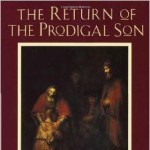 The Return of the Prodigal Son by Henri Nouwen. Sometime late in his life Nouwen, a Catholic priest, became enamored with Rembrandt’s painting The Return of the Prodigal Son. The truths he discovered in meditating on the painting changed his spiritual life and are recounted in this book. All in all, the book is a wonderful meditation on the parable of the prodigal son as Rembrandt depicted it. There are few points where Nouwen goes astray theologically, but on the whole this book will feed the soul. Nouwen helpfully shows how we all struggle to run away from God (like the prodigal) and let our complaints rob us of joy (like the elder brother). What we need, Nouwen concludes, is a fresh awareness of how God’s overflowing love leads to everlasting joy. The Return of the Prodigal Son is a masterful representation of how long meditation on a familiar story can bring out fresh truth for the heart.
The Return of the Prodigal Son by Henri Nouwen. Sometime late in his life Nouwen, a Catholic priest, became enamored with Rembrandt’s painting The Return of the Prodigal Son. The truths he discovered in meditating on the painting changed his spiritual life and are recounted in this book. All in all, the book is a wonderful meditation on the parable of the prodigal son as Rembrandt depicted it. There are few points where Nouwen goes astray theologically, but on the whole this book will feed the soul. Nouwen helpfully shows how we all struggle to run away from God (like the prodigal) and let our complaints rob us of joy (like the elder brother). What we need, Nouwen concludes, is a fresh awareness of how God’s overflowing love leads to everlasting joy. The Return of the Prodigal Son is a masterful representation of how long meditation on a familiar story can bring out fresh truth for the heart.
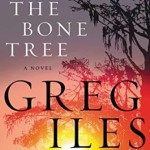 The Bone Tree by Greg Iles. I loved Iles’ Natchez Burning so much that I named it my favorite fiction book of 2014. Natchez was the first book in a trilogy and ever since reading it I’ve tried to temper my expectations for its sequel, The Bone Tree. I am delighted to say there was no need for such tempering, The Bone Tree is excellent! Iles picks up right where the narrative left off and for 800 pages, with unrelenting force, he never lets the reader go. The pages fly as Penn Cage tries to save his father, uncover the truth about Kennedy’s assassination, and take justice into his own hands when he loses a loved one. I was shocked to see just how many loose ends Iles tied up from Natchez, while simultaneously opening up new ones that will make any reader ravenous to read the trilogy’s final entry. Tolle lege!
The Bone Tree by Greg Iles. I loved Iles’ Natchez Burning so much that I named it my favorite fiction book of 2014. Natchez was the first book in a trilogy and ever since reading it I’ve tried to temper my expectations for its sequel, The Bone Tree. I am delighted to say there was no need for such tempering, The Bone Tree is excellent! Iles picks up right where the narrative left off and for 800 pages, with unrelenting force, he never lets the reader go. The pages fly as Penn Cage tries to save his father, uncover the truth about Kennedy’s assassination, and take justice into his own hands when he loses a loved one. I was shocked to see just how many loose ends Iles tied up from Natchez, while simultaneously opening up new ones that will make any reader ravenous to read the trilogy’s final entry. Tolle lege!
Click here to find other entries in the Recent Reads series.
